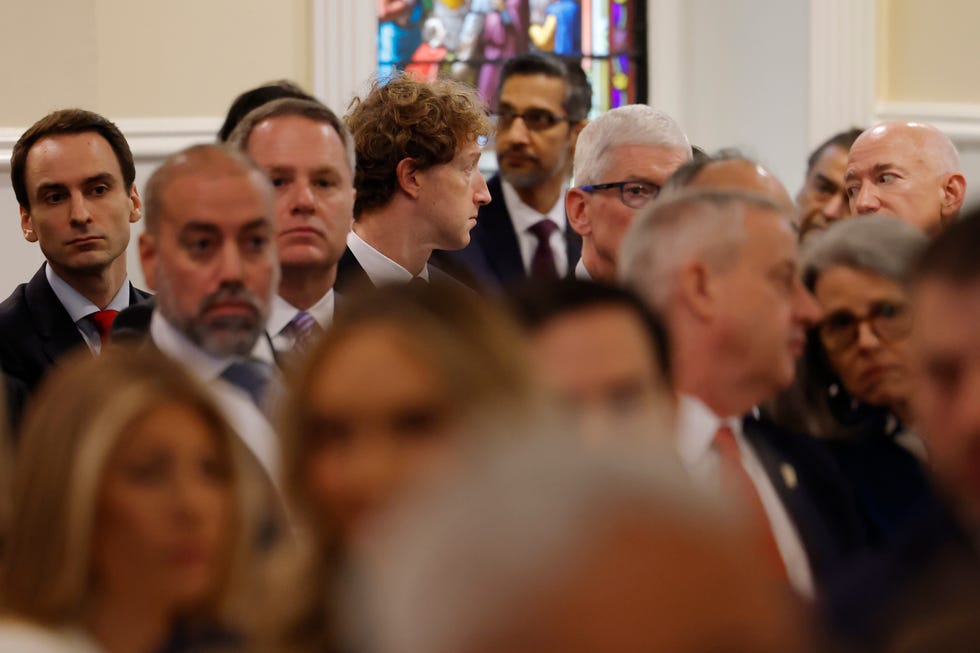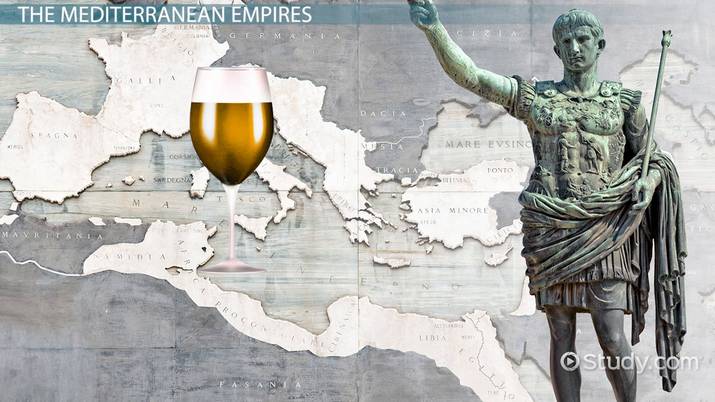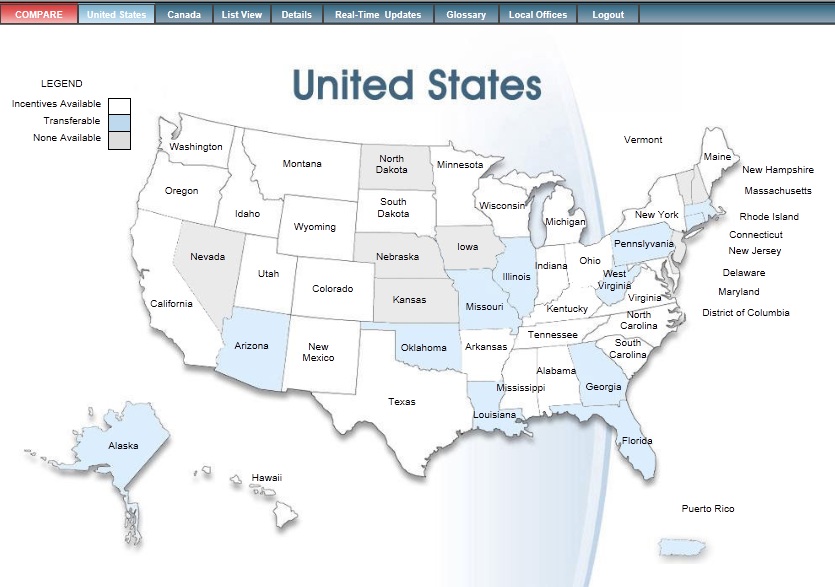Zuckerberg And Trump: A New Era For Tech And Politics

Table of Contents
The 2016 US Presidential Election and the Cambridge Analytica Scandal
The 2016 US Presidential election became a watershed moment, highlighting the potent intersection of social media and political campaigning. The Cambridge Analytica scandal, in particular, exposed the vulnerabilities of Facebook's platform and the potential for malicious exploitation.
Facebook's Role in the Spread of Misinformation
Facebook's role in disseminating misinformation during the 2016 election is a subject of ongoing debate. Targeted advertising, coupled with sophisticated algorithms, amplified divisive content and fake news, potentially swaying voter opinions. Cambridge Analytica, a data analytics firm, harvested the personal data of millions of Facebook users without their consent, utilizing this information to create highly targeted political advertising.
- Examples of specific misinformation campaigns: The spread of false stories about Hillary Clinton's health, the fabrication of Russian interference narratives designed to sow discord.
- Impact on voter turnout in key states: Studies suggest that exposure to misinformation on social media may have suppressed voter turnout in certain demographics and key swing states.
- The role of algorithms in amplifying divisive content: Facebook's algorithms, designed to maximize engagement, inadvertently amplified inflammatory and misleading content, creating echo chambers and exacerbating political polarization.
The Aftermath and Regulatory Scrutiny
The Cambridge Analytica scandal triggered intense scrutiny of Facebook and its data practices. Zuckerberg faced intense questioning before Congress, and calls for increased regulation of social media platforms intensified globally.
- Key findings of investigations: Investigations revealed widespread vulnerabilities in Facebook's data security and a lack of transparency in its advertising practices.
- Proposed regulations (e.g., GDPR, CCPA): Regulations like the General Data Protection Regulation (GDPR) in Europe and the California Consumer Privacy Act (CCPA) in the US aimed to enhance data privacy and user control.
- Facebook's responses to criticism: Facebook responded with increased investment in content moderation and data security, but critics argue that these measures are insufficient to address the systemic issues.
Trump's Use of Social Media and its Impact
Donald Trump's presidency redefined the use of social media in politics. His direct and often controversial communication via Twitter and other platforms bypassed traditional media gatekeepers.
Direct Communication with Supporters
Trump's use of Twitter, characterized by frequent pronouncements, attacks on opponents, and direct appeals to his supporters, created a unique channel of communication.
- Examples of Trump's controversial tweets: His use of social media to attack political opponents, spread conspiracy theories, and announce major policy decisions.
- His use of social media to rally support: Trump's tweets effectively mobilized his base and framed narratives around major events.
- The effect on media coverage: Trump's tweets frequently dominated news cycles, shaping public discourse and influencing the media's agenda.
The Power of Social Media for Political Mobilization
Social media platforms played a significant role in mobilizing supporters and organizing political events.
- Examples of successful social media-driven mobilization efforts: Trump rallies and protests organized through social media channels demonstrate the potential for online mobilization.
- Analysis of the role of algorithms in amplifying political messages: Algorithms again played a crucial role in shaping the reach and impact of political messages.
- Discussions of echo chambers and filter bubbles: The algorithmic amplification of political messaging contributed to the formation of echo chambers and filter bubbles, reinforcing existing biases and limiting exposure to diverse perspectives.
The Future of Tech and Politics: Navigating the Challenges
The relationship between tech giants and political processes demands careful consideration. The future requires a thoughtful approach to addressing the complexities of content moderation, algorithmic bias, and the influence of tech companies on democratic processes.
Balancing Free Speech and Responsible Platform Governance
The ongoing debate around content moderation on social media highlights the tension between protecting free speech and preventing the spread of harmful content.
- Arguments for and against content moderation: Advocates for moderation highlight the need to combat misinformation and hate speech, while opponents raise concerns about censorship and bias.
- Examples of algorithmic bias: Algorithmic bias in social media platforms can amplify certain viewpoints while suppressing others, exacerbating existing inequalities.
- Potential solutions for promoting responsible platform governance: Solutions include increased transparency in algorithmic processes, independent audits, and the development of ethical guidelines for content moderation.
The Role of Tech Companies in Shaping Democracy
Tech companies wield significant influence on elections and political processes, raising concerns about transparency and accountability.
- Examples of tech companies' involvement in political campaigns: The use of targeted advertising, data analytics, and social media for political campaigning raises questions about the influence of tech companies.
- Proposals for increased transparency: Proposals for increased transparency include mandatory disclosure of political advertising spending and algorithmic processes.
- The need for independent oversight: Independent oversight of tech companies and their political activities is crucial to ensuring fair and democratic elections.
Conclusion
The relationship between Zuckerberg and Trump underscores the profound impact of technology on politics. Understanding the influence of social media on elections, political discourse, and democratic processes is paramount. The challenges we face necessitate ongoing dialogue, thoughtful regulation, and a commitment to responsible platform governance. Moving forward, we must actively engage in discussions about the future of Zuckerberg and Trump's influence and how to navigate this new era responsibly, ensuring a healthy and vibrant democracy. Let's continue the conversation about the implications of the Zuckerberg and Trump era and work towards a more informed and responsible digital landscape.

Featured Posts
-
 Exclusive Ai Chip Development Huawei Takes On Nvidia
Apr 29, 2025
Exclusive Ai Chip Development Huawei Takes On Nvidia
Apr 29, 2025 -
 Toxic Chemical Residues From Ohio Derailment Remain In Buildings Months Later
Apr 29, 2025
Toxic Chemical Residues From Ohio Derailment Remain In Buildings Months Later
Apr 29, 2025 -
 Alan Cumming Shares Beloved Childhood Memory From Scotland
Apr 29, 2025
Alan Cumming Shares Beloved Childhood Memory From Scotland
Apr 29, 2025 -
 Hagia Sophia Enduring Icon Of Byzantine And Ottoman Empires
Apr 29, 2025
Hagia Sophia Enduring Icon Of Byzantine And Ottoman Empires
Apr 29, 2025 -
 Minnesota Film Incentives A Comprehensive Look At Tax Credits
Apr 29, 2025
Minnesota Film Incentives A Comprehensive Look At Tax Credits
Apr 29, 2025
Latest Posts
-
 All American Products Navigating The Complexities Of Domestic Production
Apr 29, 2025
All American Products Navigating The Complexities Of Domestic Production
Apr 29, 2025 -
 Manufacturing In America Obstacles And Opportunities
Apr 29, 2025
Manufacturing In America Obstacles And Opportunities
Apr 29, 2025 -
 Is The One Plus 13 R Worth Buying A Comprehensive Review
Apr 29, 2025
Is The One Plus 13 R Worth Buying A Comprehensive Review
Apr 29, 2025 -
 Ohio Train Disaster Long Term Impact Of Lingering Toxic Chemicals On Buildings
Apr 29, 2025
Ohio Train Disaster Long Term Impact Of Lingering Toxic Chemicals On Buildings
Apr 29, 2025 -
 One Plus 13 R Review A Practical Assessment
Apr 29, 2025
One Plus 13 R Review A Practical Assessment
Apr 29, 2025
